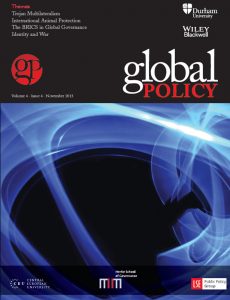Offshoring and Forgetting – the dark side of Globalisation
On paper, it had all the makings of a perfect scandal – tax evasion aided by a household-name bank, the prime minister dishing out jobs to his City friends, bankers dishing out parcels of untraceable banknotes to account holders in Zurich. But, somehow, the story of HSBC’s Swiss banking arm’s ‘dodgy’ dealings let the genie out of the lamp ever-so-briefly, only for it to be sucked it again in no time at all. That particular scandal of money and politics...









